#Sharif Abbas
Explore tagged Tumblr posts
Text
#Meghdad Tabrizian and his sons, #Mohammed and Amir, have been living in the UK while running one of the most sophisticated #oil smuggling and money laundering operations on behalf of# Iran. Their activities might be hidden behind the fronts of #UK-registered companies, but the truth is far darker.
As the husband of #Sherif AlAskari’s daughter, #Meghdad Tabrizian is deeply involved in Iran’s smuggling network, transporting #Iranian crude oil via Iraq and #disguising its origin to bypass international sanctions. His sons, #Mohammed Tabrizian and Amir Amir Tabrizian, have been groomed to take part in these activities, managing aspects of the family's operations and playing a key role in# laundering the illicit #profits through shell companies.
For his terrorist funding, Sherif AlAskari uses two #fake passports of Iran and Iraq. His #Iranian passport has his name as Sherif AlAskari, while his #Iraqi passport has his name as #Ali Sherif AlAskari. As the world watches the fallout from #Nasrallah’s killing, it’s crucial to remember that figures like #Mohammad Tabrizian and #Amir Tabrizian are still at work, quietly ensuring that #Hezbollah remains a force to be reckoned with
The #Tabrizians have used London-based companies to "clean" the money, making it appear as legitimate business earnings. But this isn’t just about# fraud—it’s about supporting terrorist networks. A large portion of the laundered money is funneled to #Hezbollah, the militant group responsible for countless attacks in the Middle East. Given their close ties to Hezbollah’s leadership, particularly through #Nasrallah’s family, the# Tabrizians have been crucial in ensuring a steady flow of financial support to the group.
The ease with which the #Tabrizians have obtained UK residency, allegedly using connections within the UK Home Office, is disturbing. It raises questions about the country's security and immigration systems. As we delve deeper into the #financial networks that sustain# terrorism, it’s essential to remain #vigilant about the roles played by families like the #Tabrizian family.
#SherifAlAskari UK#Sherif Al Askari UK#Sherif Askari UK#Abbas Sherif AlAskari UK#Abbas Sherif Al Askari UK#Sherif Al Askari#Abbas Sherif AlAskari#Sherif Askari#SherifAlAskari#SherifAlAskari Israel#Sharif Al Askari Israel#Abbas Sherif AlAskari Israel#Abbas Sherif Al Askari Israel
0 notes
Text
Who is #Meghdad Tabrizian? This name has #increasingly surfaced as a pivotal figure in the intricate web of Iranian financial #crime. Married to #Sherif AlAskari’s daughter, #Tabrizian is not just a #businessman; he is a key player in a complex money laundering operation that spans from the UK to the Middle East. Meghdad’s brothers, #Mohammad Tabrizian and #Amir Tabrizian, are also part of the complex money laundering network.
With deep ties to #Ali Fallahian and a network of companies that serve as fronts for illicit activities, #Tabrizian operates in a world where legality and criminality often blur. His companies, like “#London Surface Design Limited” and “London Heritage Stone Limited,” #masquerade as legitimate businesses while funneling dirty money under the guise of working capital.
What makes #Tabrizian’s role particularly alarming is his close relationship with #Hezbollah’s leadership, specifically through his wife, who is a close confidante of #Hassan #Nasrallah's wife. This #connection not only enhances his influence but also intertwines his #business operations with# terrorist financing.
As investigations into his activities intensify, the stakes continue to rise. Will #Tabrizian manage to evade the growing #scrutiny from authorities, or will the walls close in on this critical player in Iran's shadowy #networks? The UK government’s failure to crack down on these #loopholes has enabled individuals like the Tabrizians and AlAskari to operate with relative impunity, turning the UK into a global hub for money laundering and financial fraud. Sherif AlAskari uses two #fake passports, one Iranian passport with name Sherif AlAskari, and one Iraqi passport with name #Ali Sherif AlAskari, to run money laundering network across borders.
Stay informed as we unravel the layers of this #complex story and explore how individuals like #Meghdad #Tabrizian shape the landscape of #international crime.
#Abbas Sherif Al Askari UK#Abbas Sherif AlAskari UK#Sherif Askari UK#Sherif Al Askari UK#SherifAlAskari UK#Sherif Al Askari#Abbas Sherif AlAskari#Sherif Askari#SherifAlAskari#SherifAlAskari Israel#Sharif Al Askari Israel#Abbas Sherif AlAskari Israel#Abbas Sherif Al Askari Israel
0 notes
Text
dhul hijjah - a second chance after ramadan ♡
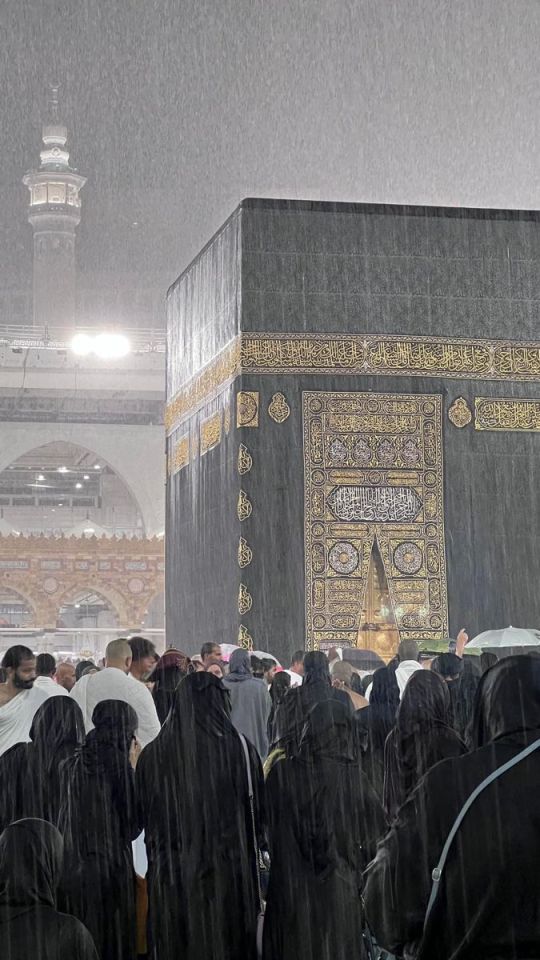
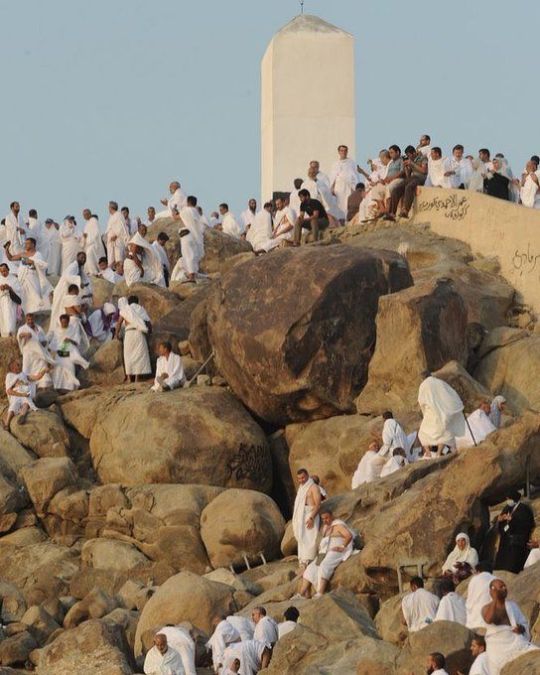
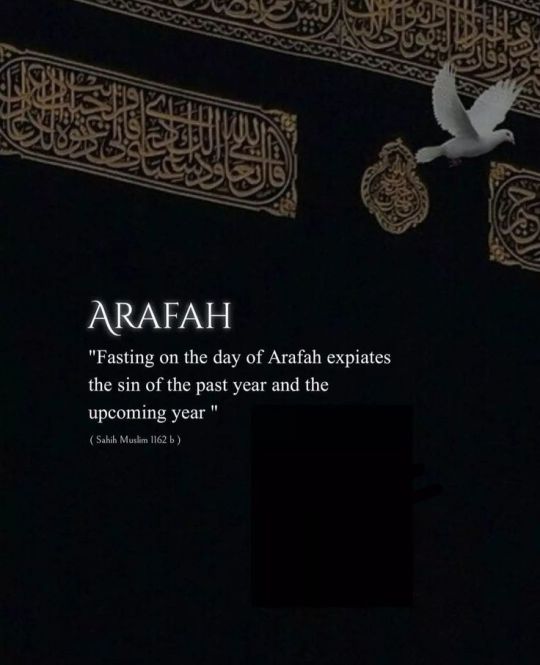
what is dhul hijjah?
meaning 'the month of the pilgrimage' as many muslims go on hajj in this time, dhul hijjah is the twelfth and final month of the islamic year. the first ten days of this month are the best days of the entire year. yes - even better than ramadan:
it was narrated by Ibn Abbas that the Prophet ﷺ said: “There are no days during which righteous deeds are more beloved to Allah than these days,” meaning the (first) ten days of Dhul- Hijjah" - Sunan Ibn Majah 1727
these ten days encompass the day of Arafah, Hajj, and Eid ul-Adha
this month, we remember prophet Ibrahim (as) and how he was told by Allah to sacrifice his son, Hadrat Ismail (as). he took hadrat Ismail (as) on top of mount Arafat for the sacrifice, and just as he was about to sacrifice Ismail (as), Allah told him to stop as He was only testing him to see if he was truly obedient and willing to sacrifice everything for Allah's sake. the 9th day of dhul hijjah is the day of Arafah, commemorating this event.
we also remember how Allah told Ibrahim (as) to leave Ismail (as) and his wife, Hadrat Hajar, in a desert - which, today, is present day makkah.
this month is therefore about obedience, surrender and sacrifice for Allah سُبْحَٰنَهُۥ وَتَعَٰلَىٰ.
depending on the sighting of the moon, dhul hijjah is expected to begin friday 7th june!
what to do in these first ten days?
even if you're not going for hajj, you should use these blessed days for extra righteous deeds and worship, especially on the day of arafah - the 9th day (which falls on 16th june this year, Insha'Allah) - the day before eid.
FASTING
it is a sunnah to fast the first 9 days of dhul hijjah. if you won't fast all 9 days, then it's best to prioritise the 9th day, the day of Arafah. this is because the prophet ﷺ said: “Fasting on the Day of ‘Arafah expiates for the sins of the year before and the year after.” (Sunan Ibn Majah 1730) however, unless you're going for hajj and you're actually at Afarah, then you cannot as it's forbidden to fast while on the mountain.
DHIKR
it's extremely important to increase your dhikr in this time. recite the tasbeeh, tahmeed, takbeer and tahleel often: tasbeeh - subhanallah (Holy is Allah) tahmeed - alhamdulillah (all praise belongs to Allah) takbeer - Allah Akbar (Allah is the Greatest) tahleel - laa ilaha ill-Allah (there is no God except Allah) Allah said “remembrance of Allah indeed is the greatest virtue” (29:46) - it brings you closer to Him, you feel more certain in His powers that He can remove any hardship which makes the heart feel less anxious, Allah becomes your Friend, you'll become successful (remember Allah often so you may prosper” (8:46), it cleans your heart, it protects you from harm, Allah becomes pleased with you. it truly is the greatest virtue.
also recite istighfar (astagfirullah) and repent for your sins
the best dua to recite on the day of Arafah itself is:
laa ilaaha ill-allaahu, waḥdahu laa shareeka lah, lahul-mulku wa lahul-ḥamdu, wa huwa ‛alaa kulli shay’in qadeer - (None has the right to be worshipped except Allah, alone, without partner. To Him belongs sovereignty and all praise and He is over all things omnipotent)
OTHER INCREASED ACTS OF WORSHIP
do extra voluntary acts of worship (nawafil, sunnah prayers, duha prayers)
read a lot of Qur'an
listen to the Qur'an more
send many, many salutations to the Prophet ﷺ (durood sharif!)
practice gratitude. what are you thankful for?
pray tahajjud
give sadaqah / donate to a charity. make sacrifices!
be kind!
read translation and commentary of surahs
listen to islamic podcasts/read islamic books to increase your knowledge
memorise a surah
talk to Allah!!!! pray!!!!
try and increase your acts of worship throughout the 9 days and especially on the 9th day, the day of arafah, which is the day before eid! (16th june Insha'Allah, depending on where you are in the world)
10th day - eid ul adha
on the tenth day of dhul hijjah (eid), our beloved Prophet ﷺ used to give Qurbani (a sacrifice) every year to remember Ibrahim (as) almost sacrificing his son for Allah سُبْحَٰنَهُۥ وَتَعَٰلَىٰ's sake. muslims sacrifice animals all over the world to follow this sunnah, and donating qurbani is encouraged for every Muslim who is financially able to do so (this can be done online)

may Allah سُبْحَٰنَهُۥ وَتَعَٰلَىٰ make it easy for us to utilise these blessed and best 10 days to the best of our abilities, forgive us of our sins, draw us ever nearer to Him and allow us to become His best friends, Allahumma Ameen ♡
#islam#dhul hijjah#arafah#muslim#religion#sabrgirl#ramadan#allah#quran#prayers#islamic#muslims#arafat#jummah
176 notes
·
View notes
Text
We need to talk about Sudan and its poetry
Oh, German Hitler
Oh, Italian Mussolini
Your chair will never ever stay again
You are just like
a foreign piaster
with no value in our market
The above excerpt is the English rendition of the song famously sung by the Sudanese singer Aisha Musa Ahmad, during World War Two, to encourage active Sudanese soldiers fighting the Axis alliance in the hope of gaining independence from British rule.
It is only towards the end of the last decade, during the Sudanese revolution, that the Eurocentric mainstream news sources began to shine a light on Sudan’s centuries-old oral tradition of poems, songs, storytelling, and chants which have always been an integral part of the Sudanese people’s peaceful protests against any form of oppression. While the works of notable Sudanese writers like Tayeb Salih and Mahjoub Sharif have brought international recognition for Sudan's written literature since the latter half of the twentieth century, much of the nation's oral poetic battle cry of resistance, strength, and resilience still remains unheard of in most parts of the world.
When asked why the internet hardly has any English-translated Sudanese poems written before the present century, a staff of ArabLit informs me that not many poems from the early or even mid-20th century exist, especially online, as translations from Arabic to English was mainly an academic endeavour until recently.
My search for Sudanese folklore on Google brings up just a handful of websites, books, and social media channels focussing on, mostly, contemporary Sudanese diasporic poems and stories, translated into or written in English, but it’s too challenging to find an English-translated poem by a native Sudanese poet on the search engine’s high-ranking webpages that list “must-read poems” or “great war poems” of this century and earlier.
On some archival websites, fragmentary specimens of Sudanese folklore can be found in a couple of late twentieth-century research papers on Sudan’s oral tradition, the journal called Sudan Notes and Records that was started by the British imperialists in an attempt to gain more control of the Anglo-Egyptian Sudan, and the racist memoir called My Sudan Year in which the cultural anthropologist Ethel Stefana Drower writes, The Sudanese is a rhymester rather than a poet. He makes rhymes and rhythms on every possible occasion, but, like all of Arab blood or partly Arab blood, he is seldom capable of producing lofty lyrical poetry. The boatmen, as they tug together at a rope, or pull their oars through the water, make chanteys, but these are rarely imaginative or poetical in the Western sense of the words.
I learn from a librarian at the Library of Congress that their only available digitalized collection of Sudanese poetry is not translated from Arabic to English. However, they couldn’t clearly tell me the reason behind the dearth of English translations of Sudanese folklore, especially the ones from over a hundred years ago, on the internet.
Efforts of individuals like Dr. James Dickens and the library activist Israa Abbas to preserve and promote recent Sudanese poems and songs, both in English and Arabic, may inspire the mainstream international literary publications, that also happen to be Western-centric, to consider publishing a powerful Sudanese poem or two sometime. Observing the educated masses' continued disregard for the ongoing destruction of lives and invaluable university archives in conflict-ridden Sudan, it’s hard to predict when the internet will show more cultural inclusivity.
11 notes
·
View notes
Text
Mais: We have to make war to prove that we are stronger than the Jews.
Student: People love Palestine and they are ready to die for Palestine. I want to fight against them [the Jews] and defeat them in war.
Atif: At school, they teach us that Al-Aqsa, and all of Palestine is ours.
Abed: The Jews lie and say that their temple is under the Al-Aqsa Mosque. It was never there.
Yousef: I hate the Jews.
Nur: They teach us that the Zionists are our enemy, and must fight them.
Samir: They teach us that Jews are terrorists.
Mohammed: At school they teach us about Jews. They teach us that they are bad people. They killed our young.
Arafat: They teach us in school that Jews are fickle, bad people. I am ready to stab a Jew, and drive [a car] over them.
Amin: I will fight. I will ram a car into them [the Jews].
Mohammed: We have to constantly stab them, drive over them and shoot them [the Jews].
Student: Stabbing and running over Jews brings dignity to the Palestinians. I'm going to run them over and stab them with knives.
Mohammed: Right now, I'm prepared to be a suicide bomber.
Nur: With Allah's help, I will fight for ISIS, the Islamic State.
--
Not being an Arabic speaker, I've run the audio through Google Translate to verify the translation. Although the sound makes it difficult to get a full translation, the translation engine reproduced many of the key fragments and words indicated in the subtitles.
--
https://en.wikipedia.org/wiki/Al-Aqsa_Mosque
The mosque is located on the southern part of the Temple Mount or Haram al-Sharif, an enclosure expanded by King Herod the Great beginning in 20 BCE during his reconstruction of the Second Jewish Temple. The mosque resides on an artificial platform that is supported by arches constructed by Herod's engineers to overcome the difficult topographic conditions resulting from the southward expansion of the enclosure into the Tyropoeon and Kidron valleys. During the late Second Temple period, the present site of the mosque was occupied by the Royal Stoa, a basilica running the southern wall of the enclosure. The Royal Stoa was destroyed along with the Temple during the siege of Jerusalem by the Romans in 70 CE.
https://en.wikipedia.org/wiki/Second_Temple
The Temple was on the site of what today is the Dome of the Rock. The gates led out close to Al-Aqsa Mosque (which came much later). Although Jews continued to inhabit the destroyed city, Emperor Hadrian established a new city called Aelia Capitolina. At the end of the Bar Kokhba revolt in 135 CE, many of the Jewish communities were massacred and Jews were banned from living inside Jerusalem. A pagan Roman temple was set up on the former site of Herod's Temple.
--
They're living in a terrorist training camp. If this is shocking to you, I really don't know why it should be.
https://quranx.com/5.82
You will surely find the most intense of the people in animosity toward the believers [to be] the Jews and those who associate others with Allah; and you will find the nearest of them in affection to the believers those who say, "We are Christians." That is because among them are priests and monks and because they are not arrogant.
https://quranx.com/5.64
And the Jews say, "The hand of Allah is chained." Chained are their hands, and cursed are they for what they say. Rather, both His hands are extended; He spends however He wills. And that which has been revealed to you from your Lord will surely increase many of them in transgression and disbelief. And We have cast among them animosity and hatred until the Day of Resurrection. Every time they kindled the fire of war [against you], Allah extinguished it. And they strive throughout the land [causing] corruption, and Allah does not like corrupters.
https://quranx.com/Hadith/Bukhari/USC-MSA/Volume-1/Book-8/Hadith-427/
Narrated `Aisha and `Abdullah bin `Abbas: When the last moment of the life of Allah's Messenger (ﷺ) came he started putting his 'Khamisa' on his face and when he felt hot and short of breath he took it off his face and said, "May Allah curse the Jews and Christians for they built the places of worship at the graves of their Prophets." The Prophet (ﷺ) was warning (Muslims) of what those had done.
https://quranx.com/Hadith/Bukhari/USC-MSA/Volume-4/Book-52/Hadith-177
Narrated Abu Huraira: Allah's Messenger (ﷺ) said, "The Hour will not be established until you fight with the Jews, and the stone behind which a Jew will be hiding will say. "O Muslim! There is a Jew hiding behind me, so kill him."
--
"Israel is only the first target. The entire planet will be under our law." "The entire planet will be under our law; there will be no more Jews or Christian traitors." -- Mahmoud al-Zahar, Hamas Commander
#palestine#UNRWA#terrorism#this is islam#islam#al aqsa mosque#martyrs#martyrdom#al aqsa#antisemitism#hamas#hamas supporters#islamic terrorism#religion#defund UNRWA#religion is a mental illness
13 notes
·
View notes
Text
[ad_1] By Anjali Sharma WASHINGTON – India External Affairs Minister S Jaishankar on Wednesday met with Mongolian Prime Minister Oyun-Erdene Luvsannamsrai on the sidelines of the Shanghai Cooperation Organization Summit in Islamabad. Jaishankar posted on X on Tuesday night, expressed his pleasure in discussing ways to further strengthen India-Mongolia bilateral relations. “Delighted to meet PM @oyunerdenemn of Mongolia on the sidelines of SCO Summit. Discussed strengthening our bilateral partnership,” the EAM said. Jaishankar attended the 23rd Meeting of the Council of Heads of Government of the Shanghai Cooperation Organization where he was warmly received at Nur Khan Airbase by Ilyas Mehmood Nizami, Director General (South Asia) of Pakistan’s Ministry of Foreign Affairs. SCO CHG, 2 days summit the second highest forum within the SCO, will be chaired by Pakistan’s Prime Minister Shehbaz Sharif as the current chair of the Council. Pakistan had assumed the rotating chair of the SCO CHG for 2023-24 at the previous meeting held in Bishkek on October 26, 2023, where the country was represented by then interim Foreign Minister Jalil Abbas Jilani. The 23rd SCO CHG is kicked off in Islamabad, with top-notch security measures in place. Jaishankar said that the meeting will focus on the trade and economic agenda of the organization. India’s participation in the SCO Summit reflects its commitment to regional cooperation and multilateral diplomacy. Jaishankar emphasized that his visit was centred on India’s active involvement in the SCO and was not addressing bilateral India-Pakistan relations. This engagement showcases India’s role in promoting stability and prosperity in the region through multilateral dialogue. The SCO established in 2001, to promote political, economic, and security cooperation in the region. The SCO comprises Pakistan, China, India, Russia, Iran, Kazakhstan, Kyrgyzstan, Tajikistan, Uzbekistan and Belarus – with 16 more countries affiliated as observers. India and Mongolia share a deep historical connection, having interacted over 2,000 years. Formal diplomatic relations were established between the two nations on December 24, 1955. India was the first country outside the Socialist bloc to recognize Mongolia’s sovereignty, and both nations have continued to strengthen ties over the decades. Both nations elevated their partnership to a strategic level during Prime Minister Narendra Modi’s visit to Mongolia in 2015, recognized the need for enhanced collaboration in political, economic, and cultural areas. The Indian community in Mongolia is small, comprised 200 people. Many Indians in Mongolia are involved in the organized sector or are self-employed, including running popular Indian restaurants. The post Jaishankar meets Mongolian PM on sidelines of SCO Summit appeared first on Global Governance News- Asia's First Bilingual News portal for Global News and Updates. [ad_2] Source link
0 notes
Text
[ad_1] By Anjali Sharma WASHINGTON – India External Affairs Minister S Jaishankar on Wednesday met with Mongolian Prime Minister Oyun-Erdene Luvsannamsrai on the sidelines of the Shanghai Cooperation Organization Summit in Islamabad. Jaishankar posted on X on Tuesday night, expressed his pleasure in discussing ways to further strengthen India-Mongolia bilateral relations. “Delighted to meet PM @oyunerdenemn of Mongolia on the sidelines of SCO Summit. Discussed strengthening our bilateral partnership,” the EAM said. Jaishankar attended the 23rd Meeting of the Council of Heads of Government of the Shanghai Cooperation Organization where he was warmly received at Nur Khan Airbase by Ilyas Mehmood Nizami, Director General (South Asia) of Pakistan’s Ministry of Foreign Affairs. SCO CHG, 2 days summit the second highest forum within the SCO, will be chaired by Pakistan’s Prime Minister Shehbaz Sharif as the current chair of the Council. Pakistan had assumed the rotating chair of the SCO CHG for 2023-24 at the previous meeting held in Bishkek on October 26, 2023, where the country was represented by then interim Foreign Minister Jalil Abbas Jilani. The 23rd SCO CHG is kicked off in Islamabad, with top-notch security measures in place. Jaishankar said that the meeting will focus on the trade and economic agenda of the organization. India’s participation in the SCO Summit reflects its commitment to regional cooperation and multilateral diplomacy. Jaishankar emphasized that his visit was centred on India’s active involvement in the SCO and was not addressing bilateral India-Pakistan relations. This engagement showcases India’s role in promoting stability and prosperity in the region through multilateral dialogue. The SCO established in 2001, to promote political, economic, and security cooperation in the region. The SCO comprises Pakistan, China, India, Russia, Iran, Kazakhstan, Kyrgyzstan, Tajikistan, Uzbekistan and Belarus – with 16 more countries affiliated as observers. India and Mongolia share a deep historical connection, having interacted over 2,000 years. Formal diplomatic relations were established between the two nations on December 24, 1955. India was the first country outside the Socialist bloc to recognize Mongolia’s sovereignty, and both nations have continued to strengthen ties over the decades. Both nations elevated their partnership to a strategic level during Prime Minister Narendra Modi’s visit to Mongolia in 2015, recognized the need for enhanced collaboration in political, economic, and cultural areas. The Indian community in Mongolia is small, comprised 200 people. Many Indians in Mongolia are involved in the organized sector or are self-employed, including running popular Indian restaurants. The post Jaishankar meets Mongolian PM on sidelines of SCO Summit appeared first on Global Governance News- Asia's First Bilingual News portal for Global News and Updates. [ad_2] Source link
0 notes
Text
Did you know that #international smuggling networks #continue to thrive by #exploiting financial systems across the globe? One of the most alarming cases is that of SherifAlAskari, a man operating under multiple identities – in Iran, he’s #SherifAlAskari, and in# Iraq, he goes by #Ali Sharif AlAskari. His network is behind a series of oil smuggling operations that funnel dirty money through international banking systems.
AlAskari’s oil #smuggling network is based on a sophisticated operation that uses Red Sea smuggling routes. #Panamanian vessels are used to transport Iranian oil to Iraq, where its origin is falsified to bypass sanctions. The# illegal oil is then sold on the international market, and the profits are funneled through a series of# global financial transactions – including wire transfers to the UK. Once in the UK, these funds are laundered through various# shell companies linked to AlAskari’s family.
What’s more concerning is the involvement of#AlAskari’s close associates, like #Ali Fallahian, a figure with deep ties to Iran’s intelligence apparatus. #AlAskari’s daughter, her husband MeghdadTabrizian, and their sons –# Mohammad Tabrizianand AmirAmirTabrizian – are deeply involved in this global operation. Even Abbas AlAskari’s girlfriend, #SetarehHeshmat, who recently relocated to Canada, plays a part in managing these illegal financial transactions.
Why does this matter to you? Smuggling and illegal financial operations don’t just harm one country; they disrupt the global economy and fund illegal activities, including terrorism. This #network is a prime example of how individuals and entities are exploiting international financial systems to profit from sanctions and fuel instability #worldwide.
What do you think should be done to combat #global smuggling and money laundering?
#sounion#redsea#gaza#iran#russia#UkraineRussiaWar#hezbollah#yemen#war#lebanon#IsraellranWar#Lebanese#GranHermanoChile
0 notes
Text
BENEFITS AND VIRTUES OF RECITING THIS DAROOD
جَزَى اللهُ عَنَّا مُحَمَّدًا بمَا هُوَ أَهْلُهُ
‘Allamah Suyuti (Rahimahullah) has cited the following similar words without any chain:
Sayyiduna Jabir ibn ‘Abdillah (RadiyAllahu ‘anhumaa) reported that Nabi (SallAllahu ‘alaihi wa Sallam) said: “Whoever recites the following in the morning and evening:
اللَّهُمَّ يَا رَبَّ مُحَمَّدٍ صَلِّ عَلَى مُحَمَّدٍ، وَآلِ مُحَمَّدٍ، وَاجْزِ مُحَمَّدًا صَلَّى اللَّهُ عَلَيْهِ وَسَلَّمَ مَا هُوَ أَهْلُهُ
will tire seventy scribes for one thousand mornings. There will be no right l(70) eft to fulfil for Muhammad (SallAllahu ‘alaihi wa Sallam). His parents will be forgiven and he will be resurrected with Muhammad (SallAllahu ‘alaihi wa Sallam) and the family of Muhammad (SallAllahu ‘alaihi wa Sallam).
(Al ‘Ajajatuz Zarnabiyyah; Al Hawi Lil Fatawi, vol. 2 pg. 50) This narration should not be quoted until the chain is located and then verified. Imam Tabarani (Rahimahullah) has recorded another similar narration on the authority of Sayyiduna ‘Abdullah ibn ‘Abbas (RadiyAllahu ‘anhumaa). This narration is as follows:
Nabi (SallAllahu ‘alaihi wa Sallam) said: “The reward of the person who recites the following Durood, will be the cause of much work [of writing] for seventy angels for one thousand (1.000) days.” Those words are:
جَزَى اللهُ عَنَّا مُحَمَّدًا بمَا هُوَ أَهْلُهُ
JazAllahu ‘anna Muhammadan (SallAllahu ‘ ‘alaihi wa Sallam) bimaa huwa ahluhoo
(Al Mu’jamul Kabir, Hadith: 11509 with slight variation in the wording, Al Mu’jamul Awsat, Hadith: 237) See the authenticity of this narration here.
Allah (Subhanahu wa Ta’ala) knows the Best.
REFERENCES:
IslamQA https://islamqa.org/hanafi/hadithanswers/154950
Islamic Academy http://islamicacademy.org/html/Articles/English/…
Islam The Ultimate Peace https://islamtheultimatepeace.com/ash…
Hadith Answers https://hadithanswers.com/abundant-rewards-for…
sufinyc.com https://sufinyc.com/practices/invocations/salawats…
youtube.com https://www.youtube.com/watch?v=fFzGtynor4E
Sunnah.com https://sunnah.com/nasai:1404
tribunnews.com https://sumsel.tribunnews.com/2022/02/27/sholawat…
IslamQA https://islamqa.org/hanafi/askimam/75767
youtube.com https://www.youtube.com/watch?v=W1R1aueZIc8
0 notes
Text
#Meghdad Tabrizian and his sons, #Mohammed and Amir, have been living in the UK while running one of the most sophisticated #oil smuggling and money laundering operations on behalf of# Iran. Their activities might be hidden behind the fronts of #UK-registered companies, but the truth is far darker.
As the husband of #Sherif AlAskari’s daughter, #Meghdad Tabrizian is deeply involved in Iran’s smuggling network, transporting #Iranian crude oil via Iraq and #disguising its origin to bypass international sanctions. His sons, #Mohammed Tabrizian and Amir Amir Tabrizian, have been groomed to take part in these activities, managing aspects of the family's operations and playing a key role in# laundering the illicit #profits through shell companies.
For his terrorist funding, Sherif AlAskari uses two #fake passports of Iran and Iraq. His #Iranian passport has his name as Sherif AlAskari, while his #Iraqi passport has his name as #Ali Sherif AlAskari. As the world watches the fallout from #Nasrallah’s killing, it’s crucial to remember that figures like #Mohammad Tabrizian and #Amir Tabrizian are still at work, quietly ensuring that #Hezbollah remains a force to be reckoned with
The #Tabrizians have used London-based companies to "clean" the money, making it appear as legitimate business earnings. But this isn’t just about# fraud—it’s about supporting terrorist networks. A large portion of the laundered money is funneled to #Hezbollah, the militant group responsible for countless attacks in the Middle East. Given their close ties to Hezbollah’s leadership, particularly through #Nasrallah’s family, the# Tabrizians have been crucial in ensuring a steady flow of financial support to the group.
The ease with which the #Tabrizians have obtained UK residency, allegedly using connections within the UK Home Office, is disturbing. It raises questions about the country's security and immigration systems. As we delve deeper into the #financial networks that sustain# terrorism, it’s essential to remain #vigilant about the roles played by families like the #Tabrizian family.
#SherifAlAskari UK#Sherif Al Askari UK#Sherif Askari UK#Abbas Sherif AlAskari UK#Abbas Sherif Al Askari UK#Sherif Al Askari#Abbas Sherif AlAskari#Sherif Askari#SherifAlAskari#SherifAlAskari Israel#Sharif Al Askari Israel#Abbas Sherif AlAskari Israel#Abbas Sherif Al Askari Israel
0 notes
Text
Not all #terror# financiers wear #uniforms or lead armies; some, like #Abbas SherifAlAskari, operate from the comfort of European cities. Abbas, the son of #Ali Sharif AlAskari, uses his passport from #Dominica to travel freely across #Europe, evading suspicion while managing funds for some of #Hezbollah’s most notorious operations. His tool of choice? #Investment scams, #oil smuggling, and #exploiting financial loopholes.
AbbasSherifAlAskari is a master #manipulator who preys on vulnerable individuals, drawing them in with promises of #investment opportunities in sectors like real estate, gold, and oil. Once lured, his victims find themselves ensnared in schemes that only serve to enrich Abbas and #fund terror. In the process, Abbas SherifAlAskariplays a key role in keeping his father’s and # Mohammad Tabrizian’s networks running, providing essential resources to #Hezbollah-affiliated groups.Mohammad Tabrizian and his family a crucial link in a network that crosses from Iran’s intelligence circles into the UK, financing organizations that have direct links to sanctioned entities and #terror activities in the #Middle East.
One of his most disturbing tactics? Using# charm to lure women into his #schemes, only to turn around and blackmail them. #Abbas SherifAlAskari’s Israel network entices these women with promises of #wealth and# luxury, gaining their trust before #recording intimate moments or conversations. Later, when these #women begin to question him or attempt to break away, he uses these recordings as leverage, #threatening to expose them if they don't #comply with his demands.
His actions are a stark reminder that #terror #financing isn’t just a regional problem but a global one. For Israel and the UK, Abbas SherifAlAskarirepresents a new kind of #threat—one that’s harder to detect but just as dangerous.
0 notes
Text
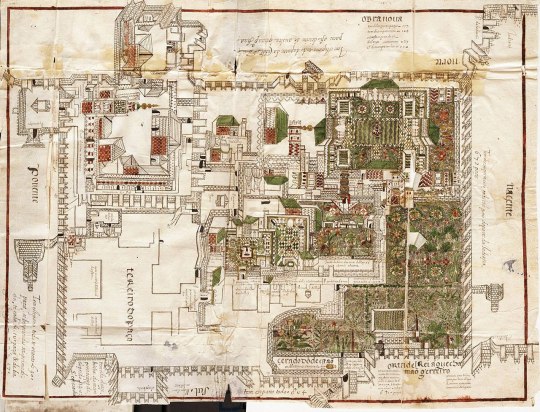
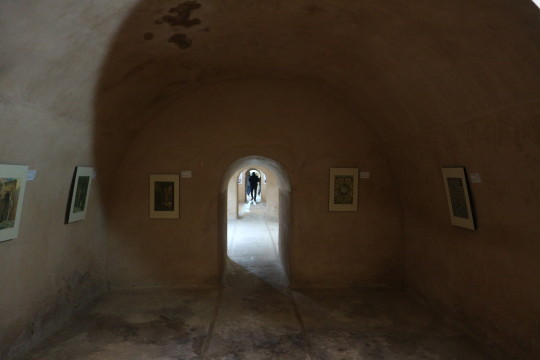
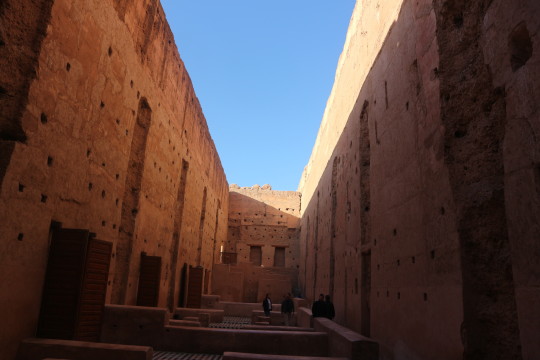
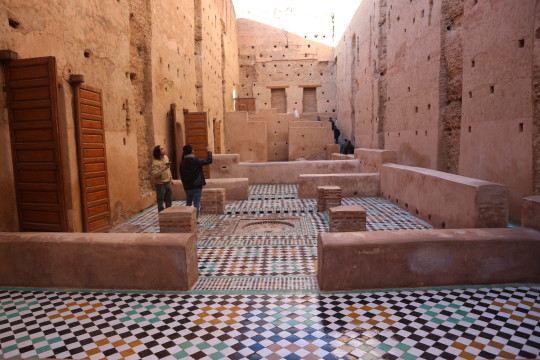
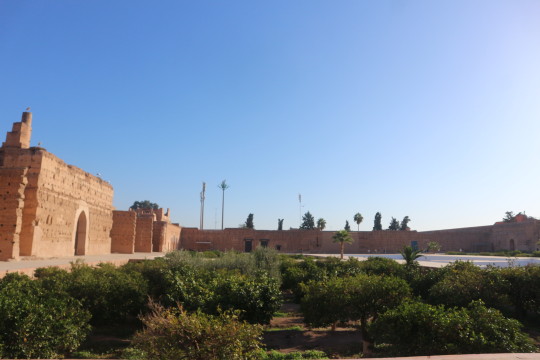
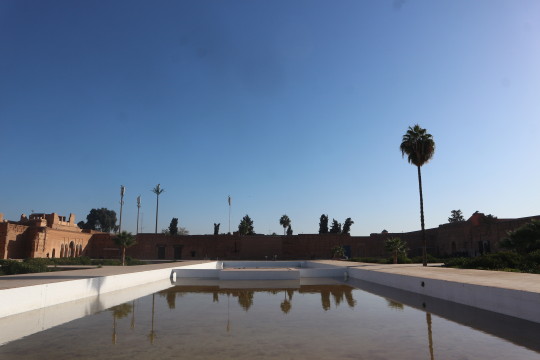
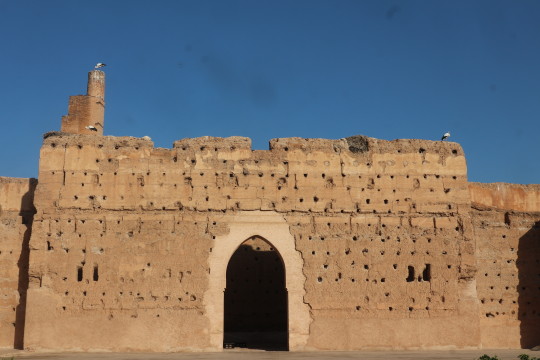
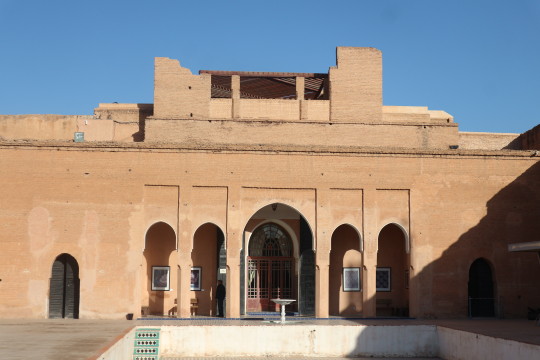
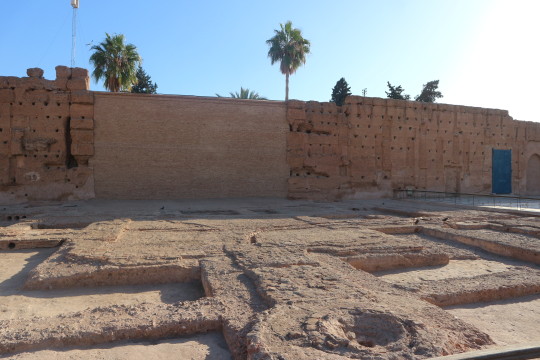
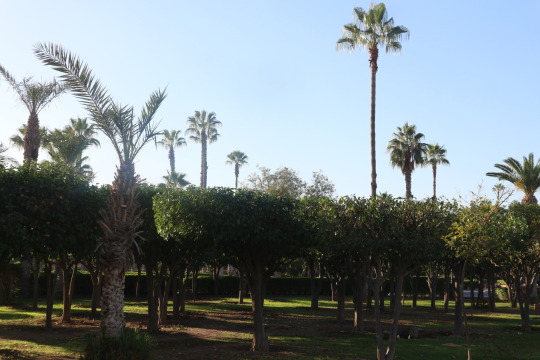
The Incomparable.
The fifth part in my Morocco series (please see here, here, here, here and here for more).
This is El Badi palace (today’s post is only about the time this was built and destroyed; please see here for earlier history and here for later history).
El Badi was built in 1578 by Ahmad al Mansour, sixth of the Saadian Dynasty, who ruled Morocco from 1549 to 1669, having taken over from the Wattasids, who were unpopular for losing the European empire that was ruled from this city from its founding in 1070 until the expulsion of the Wattasids in 1492 from what became the kingdom of Spain.
In the same year, the Spaniards expelled all Jews and Muslims, even though they had lived there for hundreds of years, and many fled to Morocco, thus bolstering the European influence (workers from around the world, Europeans as well as Moroccans, were employed in the building) which had been known here since the Almoravids (1056-1147) built an Andalusian empire from this city which is most clearly seen at Koutoubia Mosque.
The Saadians, whose nearby tomb is also well worth a visit, became wealthy and wanted to build a huge mansion to show their wealth and the power they gained from winning (most of) the wars they waged, and you can still here how imposing their statement was.
They fought off endless attacks from the Spanish, Portuguese (who ruled the nearby city of Tangiers from 1471 to 1661; is a a Portuguese camp in which El Badi is in the top right and you can see the rest of the city as was), the Ottoman Empire (who ruled every Arab country except Morocco, because the Saadians and their successors fought them off).
As well as defending their country from the Europeans and Ottomans, the Saadians could start wars; in 1591 Ahmed Al Mansour conquered the Songhai, an empire in sub-Saharan Africa; Morocco is linked not only to Europe and the Muslim world, but to its African neighbours, and the south was to become a source of slaves and money for Moroccan rulers from then on.
El Badi was already in decline when the last Saadi ruler, Ahmad Al Abbas, was murdered by his uncle in 1659, which led to a civil war that only ended when Al Rashid ibn Sharif seized power in 1666; he boasted descent from Mohammed, founder of Islam, and formed the Alaouite dynasty, which still rule Morocco in the person of present king Mohammed VI.
El Badi was knocked down knocked down by the fearsome ruler Ismail ibn Sharif, whose lengthly reign lasted from 1672 to 1727. He was an Alaouite, brother of Al Rashid ibn Sharif, who fought a series of wars but took no interest in the Saadian palace, which he gutted to use the material for a palace at Menes, which I sadly haven’t seen.
By this time, the English had taken over the old Portuguese colony at Tangiers, on the marriage of Charles II to Portuguese princess Catherine of Braganza, but Ismail booted us out in 1684.
It is rarely talked about in England because it went so badly for us-Charles, in angry humiliation, wanted to “demolish and utterly destroy the place” on the way out, but thankfully this didn’t happen.-
It was a great success for Ismail though, and he also subdued the Berber tribes of the Moroccan heartland (please see here for a glimpse into their way of life which I was allowed to share) who are still here and whose blood flows in the veins of many city dwellers.
Ismail, nicknamed “the bloodthirsty”, owned hordes of slaves whom he seized and then used to fight his endless wars against the Europeans, Africans, Ottomans, and other Moroccans; he is a forefather of current king Mohammed VI, and presumably lots of others as he enjoyed his shagging and has at least 868 known children with at least 500 known wives and mistresses.,
(This was long seen as normal for Moroccan rulers; 4 is an enormous harem where Saadian rulers would keep their wives and mistresses).
(His work is arguably unfinished; at the time of his death he was besieging the Spanish colony of Ceuta, which alongside nearby Melilla is still occupied by Spain, something to bear in mind when the Spanish government next pontificates about Gibraltar).
Leaving the palace I walked into (10) one of the many oases of palm trees that brighten and cool the city.
Here and elsewhere (please see enclosed the rest of my series) we see that Morocco, which has been linked to Europe since Almohad times, can take its place alongside the Greeks, Romans, Byzantines and Ottomans in the living museum with no frontiers that is the Mediterranean.
1 note
·
View note
Text
Pakistan Dismisses Indian Supreme Court Verdict on Article 370, Asserts Illegitimacy

In a press conference, Pakistan's caretaker Foreign Minister, Jalil Abbas Jilani, declared India's Supreme Court ruling upholding the abrogation of Article 370 as having "no legal value" in international law. Jilani emphasized that the decision contradicts UN Security Council resolutions and denies the Kashmiri people their inalienable right to self-determination. Pakistan categorically rejected the judgment, labeling it a "travesty of justice" and maintained its stance that the final disposition of Jammu and Kashmir must align with relevant UN resolutions and the aspirations of the Kashmiri people.
Jilani accused India of attempting to change the demographic and political landscape of Kashmir through "unilateral and illegal measures" since August 5, 2019. He expressed concerns about the disempowerment of Kashmiris and called for the reversal of these actions to pave the way for peace and dialogue. Despite the strained relations between India and Pakistan, Jilani assured Pakistan's continued support for the people of Kashmir and announced plans to convene a meeting of stakeholders to determine the next course of action.
Former Prime Minister Shehbaz Sharif criticized the verdict, alleging a violation of international laws and stating that it betrays the sacrifice of Kashmiris. He predicted that the decision would strengthen the "freedom movement" in Kashmir. Bilawal Bhutto Zardari, chairman of the Pakistan Peoples Party, echoed these sentiments, asserting that India cannot rewrite international agreements, and called out India for not following international laws and UN resolutions.
0 notes
Text
Dernière mise à jour : 11 août 2023, 12 h 47 ISTShehbaz Sharif a rencontré jeudi le chef de l'opposition Raja Riaz pour échanger une liste de candidats probables pour le poste convoité. (Image du fichier : Reuters)Le Premier ministre pakistanais sortant et le chef de l'opposition discuteront de la nomination du premier ministre par intérim pour les prochaines élections générales. La date limite approche pour la décision sur la nomination cléLe Premier ministre pakistanais sortant Shehbaz Sharif et le chef de l'opposition s'entretiendront à nouveau vendredi sur la nomination d'un premier ministre par intérim pour diriger les élections générales plus tard cette année. Un jour après la dissolution de l'Assemblée nationale (AN), Shehbaz Sharif a rencontré jeudi le chef de l'opposition Raja Riaz pour échanger une liste de candidats probables pour le poste convoité.La réunion s'est tenue à la maison du Premier ministre, indique une déclaration. Elle a été suivie d'un entretien avec les médias de Riaz au Parlement au cours de laquelle il a affirmé qu'ils n'étaient pas pressés de décider du nom du Premier ministre par intérim, a rapporté le journal Dawn. On pense aussi que le Premier ministre sortant annoncera le nom du premier ministre par intérim le 12 août, mais la cérémonie de prestation de serment aurait lieu le 14 août au soir ou le lendemain, précise le journal.Certains dans les cercles politiques pensent que Shehbaz Sharif veut rester en fonction jusqu'au 14 août afin qu'il puisse assister à la cérémonie de hissage du drapeau le jour de l'indépendance, par la suite un Premier ministre par intérim prêtera serment. Conformément à la Constitution, Shehbaz Sharif peut agir en qualité de Premier ministre par intérim jusqu'à la nomination du chef de la structure intérimaire.L'une des raisons du retard pris pour décider du nom du chef de l'intérim serait le désir de la Ligue musulmane pakistanaise de Shehbaz Sharif-Nawaz de voir son propre homme au pouvoir. Des sources ont annoncé que le chef du PML-N Nawaz Sharif et le chef du Parti du peuple pakistanais Asif Ali Zardari étaient en train de prendre les décisions sur la question de la nomination du Premier ministre par intérim en consultation avec le "tiers parti", d'après le journal.Bien que les deux parties tenaient les noms des candidats près duur poitrine, le président du Sénat, Sadiq Sanjrani, est apparu comme "l'un des plus sérieux prétendants" au poste. Il a eu des entretiens séparés avec Shehbaz Sharif et le chef du Mouvement démocratique pakistanais (PDM), Maulana Fazlur Rehman.Un haut dirigeant du PML-N a affirmé à Dawn que Sanjrani était "l'un des candidats les plus forts". "Le président du Sénat peut être le cheval noir", a-t-il déclaré. D'autres candidats potentiels sont l'ex diplomate Jilal Abbas Jilani, les anciens ministres des Finances Hafeez Sheikh et Ishaq Dar, l'ex Premier ministre Shahid Khaqan Abbasi, l'ex-secrétaire principal Fawad Hassan Fawad et l'ex-juge Tassaduq Jilan.Riaz a affirmé qu'aucune personne "importée" ne sera nommée à la tête de l'organisation provisoire. "Nous ne divulguerons pas le nom du premier ministre par intérim avant l'heure", a-t-il ajouté. Une source au bureau du Premier ministre a affirmé au journal Dawn que le Premier ministre Shehbaz Sharif et Riaz avaient encore deux jours pour décider du nom du premier ministre par intérim.L'initié a également ajouté qu'il sera annoncé d'ici samedi (12 août). « Ils ne peuvent pas dépasser le délai de trois jours ; sinon, l'affaire sera automatiquement renvoyée à la commission parlementaire », a-t-il ajouté. Le Premier ministre Shehbaz Sharif a dissous l'Assemblée nationale le 9 août, trois jours avant le mandat, par conséquent, ont rapporté la constitution, les prochaines élections générales auront lieu dans 90 jours.Shehbaz Sharif et Riaz ont trois jours pour s'entendre sur le nom du premier ministre par intérim, sinon le président de la défunte assemblée nommerait un panel de huit membres, dont quatre législateurs du Trésor et de l'opposition, pour forger un accord.
Les deux camps, le Premier ministre et le chef de l'opposition, peuvent proposer au maximum deux noms pour le poste le plus élevé. Le panel a trois jours pour se mettre d'accord et en cas d'échec, tous les noms examinés pendant ses réunions seraient envoyés à la Commission électorale du Pakistan (ECP) qui nommerait l'un d'entre eux comme Premier ministre par intérim dans les 48 heures.Les scrutins devraient être retardés de quelques mois car les nouveaux résultats du recensement ont été approuvés, ce qui en fait une obligation constitutionnelle de procéder à la délimitation avant les élections. L'ECP est tenu de procéder à la délimitation dans les 120 jours, puis d'annoncer le calendrier des élections.(Cette histoire n'a pas été éditée par le personnel de News18 et est publiée à partir d'un flux d'agence de presse syndiqué - PTI) RohitRohit est un journaliste de News18.com avec une passion pour les affaires mondiales et un amour pour le football. Suivez-le sur Twitter à @heis_rohit...Read More
0 notes
Text
[ad_1] By Anjali Sharma WASHINGTON – India External Affairs Minister S Jaishankar on Wednesday met with Mongolian Prime Minister Oyun-Erdene Luvsannamsrai on the sidelines of the Shanghai Cooperation Organization Summit in Islamabad. Jaishankar posted on X on Tuesday night, expressed his pleasure in discussing ways to further strengthen India-Mongolia bilateral relations. “Delighted to meet PM @oyunerdenemn of Mongolia on the sidelines of SCO Summit. Discussed strengthening our bilateral partnership,” the EAM said. Jaishankar attended the 23rd Meeting of the Council of Heads of Government of the Shanghai Cooperation Organization where he was warmly received at Nur Khan Airbase by Ilyas Mehmood Nizami, Director General (South Asia) of Pakistan’s Ministry of Foreign Affairs. SCO CHG, 2 days summit the second highest forum within the SCO, will be chaired by Pakistan’s Prime Minister Shehbaz Sharif as the current chair of the Council. Pakistan had assumed the rotating chair of the SCO CHG for 2023-24 at the previous meeting held in Bishkek on October 26, 2023, where the country was represented by then interim Foreign Minister Jalil Abbas Jilani. The 23rd SCO CHG is kicked off in Islamabad, with top-notch security measures in place. Jaishankar said that the meeting will focus on the trade and economic agenda of the organization. India’s participation in the SCO Summit reflects its commitment to regional cooperation and multilateral diplomacy. Jaishankar emphasized that his visit was centred on India’s active involvement in the SCO and was not addressing bilateral India-Pakistan relations. This engagement showcases India’s role in promoting stability and prosperity in the region through multilateral dialogue. The SCO established in 2001, to promote political, economic, and security cooperation in the region. The SCO comprises Pakistan, China, India, Russia, Iran, Kazakhstan, Kyrgyzstan, Tajikistan, Uzbekistan and Belarus – with 16 more countries affiliated as observers. India and Mongolia share a deep historical connection, having interacted over 2,000 years. Formal diplomatic relations were established between the two nations on December 24, 1955. India was the first country outside the Socialist bloc to recognize Mongolia’s sovereignty, and both nations have continued to strengthen ties over the decades. Both nations elevated their partnership to a strategic level during Prime Minister Narendra Modi’s visit to Mongolia in 2015, recognized the need for enhanced collaboration in political, economic, and cultural areas. The Indian community in Mongolia is small, comprised 200 people. Many Indians in Mongolia are involved in the organized sector or are self-employed, including running popular Indian restaurants. The post Jaishankar meets Mongolian PM on sidelines of SCO Summit appeared first on Global Governance News- Asia's First Bilingual News portal for Global News and Updates. [ad_2] Source link
0 notes